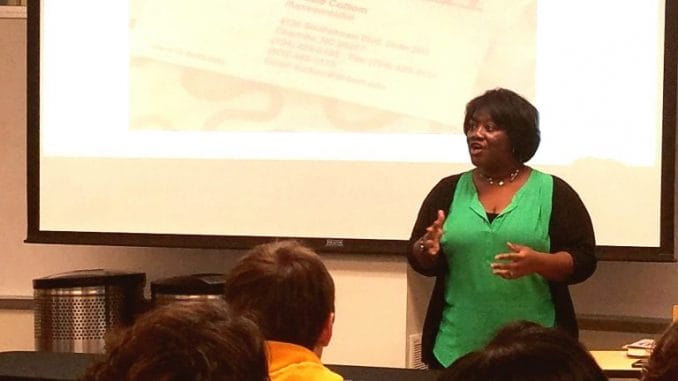
Shirin Podury, Contributing Writer
A sociology professor discussed her critically-acclaimed book on “The Daily Show with Trevor Noah” Jan. 15.
Tressie McMillan Cottom’s book, “Thick: And Other Essays,” consists of a collection of essays outlining the nuances of black womanhood. The essays drew from her experiences and included an array of topics ranging from healthcare to rallies protesting the Trump administration. Reviews described the work as emotionally taxing and containing uncomfortable subject matter but labelled it an essential addition to bookshelves.
“There’s this theme running through the history of black women’s experience of this country and of the world that is about being nuanced,” Cottom said on the show. “And sometimes too nuanced for the world to perceive us as we perceive ourselves. It was in that nuance where I wanted people to get comfortable.”
She continued to speak on the multifaceted experiences of black women. Cottom said she wrote the book to address the insufficient portrayal of black women without labeling an overarching definition of what it means to be a black woman in this day and age.
As an educated black woman, she said, people sometimes listen to her experiences without looking into the perspectives of other black women. Trying to prevent readers from considering “Thick: And Other Essays” an all-encompassing perspective, she chose the format of “slice of life” essays.
“I didn’t want to give the impression that by reading one definitive text about black women you knew everything there is to know about black women,” Cottom said. “Instead, [this gives] a slice of life in the thinking and the philosophy of black womanhood as I understand it.”
Cottom told Noah all black women deserve a place in public discourse.
“Frankly, I think we’re smarter if we listen to black women.” Cottom said. “That’s not to say that black women are always right, but black women always have the right to be heard. When you don’t model [taking] black women seriously in our public discourse it reinforces the idea that people don’t have to take us seriously.”
She also spoke about the importance of being unapologetically black. When addressing code-switching — a cultural practice of alternating linguistic patterns and phrases — Cottom said people have the freedom to not partake in it.
“I am acknowledging the fact that I have achieved certain status symbols that we tend to associate with people who don’t look like me,” Cottom said. “I want to make people uncomfortable with the fact that they are uncomfortable with me [and] reconcile with the fact that I sound like I sound, I look like what I look like and I am what I am.”


Leave a Reply